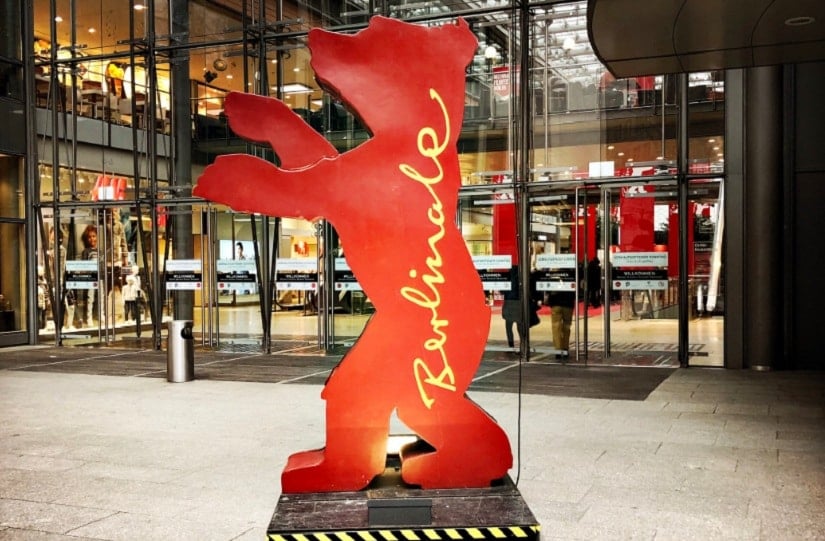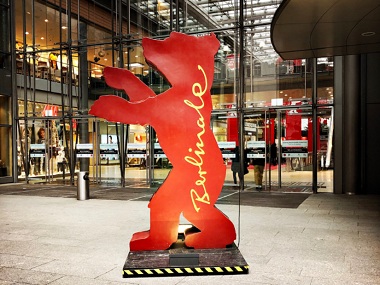The 69th Berlinale that ended last weekend also saw the end of tenure of its much-loved director Dieter Kosslick. Kosslick has been a friend to many in the festival circuit and his affirmative geniality reached across borders. Even as the festival delivered a few insipid years, Kosslick soldiered on with better hopes for the forthcoming years. In the 18 years of his tenure, under his watch, the stakes of the festival rose considerably, making Berlinale one of the biggest in Europe that rarely shies away from making political statements. [caption id=“attachment_6109621” align=“alignnone” width=“825”]  Berlinale 2019. Image via Twitter/@CP_Berlin[/caption] Kosslick handed over the mantle to the two-member team of directors Carlo Chatrian and Mariette Rissenbeek. As the festival wound up and the awards were announced, Berlinale’s moments of reckoning came in the form of talks about the politically charged topic of state censorship. The organisers hid behind the polite excuse of “technical difficulties,” for not screening director Zhang Yimou’s latest, One Second, that features events in the backdrop of Culture Revolution. While speculations were rife about why the movie was pulled out (censorship), organisers didn’t seek to clarify the obvious doubts. Jury president Juliette Binoche simply expressed regret for not screening the movie, without offering any criticism or explanation. After all, this was the same festival that screened works like Errol Morris’s documentary Standard Operating Procedure in 2008, exposing the US military’s tortures in the Abu-Ghraib prison in Iraq, and featured movies focusing on the Arab Spring in 2012 and works on hot-button issues like the immigrant crisis. Another one of Berlinale’s moments of hand-wringing this year came from a skirmish created by Netflix. Angered by the presence of Netflix’s Spanish lesbian drama Elisa y Marcela in the competition section (which will not see a theatrical release, a necessity for movies in the section), 160 German exhibitors wrote an open letter to the festival and Germany’s culture minister Monika Grütters. They were joined by European arthouse cinema body CICAE in expressing concern over Netflix’s presence. “The Berlinale stands for the big screen, Netflix the small screen,” their letter read. While the same issue came up at Cannes last year, the festival restrained from admitting Netflix in his competition lineup. Berlinale, however, chose to be liberal with Netflix. Speaking to Deadline on the issue, Kosslick had this to say: “The international film festivals should take a common stance on how to deal with films from streaming platforms in the future.” He didn’t elaborate on whether Berlinale will continue to accept Netflix films in the future either. Will this open the floodgates for Netflix in other film festivals? Only time will tell. Another Netflix film, actor Chiwetel Ejiofor’s The Boy Who Harnessed the Wind, screened without much hullabaloo. Not everything was doom and gloom, however. Kosslick, on his way out, signed a pledge to increase gender representation before the world forgets the #MeToo movement and hops on to the next crisis train. The festival had a 41percent gender representation this year in the competition section. Of the 17 films at the competition, seven were directed by women. The pledge, titled 5050 x 2020, aims, “to work for increased gender equality at the festival and the market”. In the absence of big-ticket Hollywood movies and stars, Berlinale’s red carpet was populated by global movies and European stars. It perhaps bodes well with Berlinale’s image as a niche and political, yet stable and somewhat reliable festival that makes a statement or two with its selection of movies. This was also evident in the award selection where movies with personal struggles laced with political themes bagged one too many prizes. The organisers announced that the 70th edition of the festival will run between 20 February to 1 March, 2020, one week later than the festival’s end date this year. It’s fair to say that Kosslick will be missed. Nevertheless, Berlinale 2019 has set its bar high for the coming year and bid goodbye with much to hope for, despite minor ripples in its execution this year.
The 69th Berlinale that ended last weekend also saw the end of tenure of its much-loved director Dieter Kosslick
Advertisement
End of Article


)
)
)
)
)
)
)
)
)



